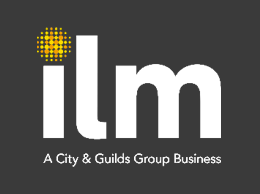With many businesses and employees being suddenly forced to work remotely and start using a range of new conference / communication technology, Futureproof Training have also seen a sudden increase in the number of requests for virtual training and development support.
This short post is designed to provide useful information regarding the key differences between two of the main virtual delivery formats that you may consider using for staff development / support interventions.
What is a Virtual Seminar?
Futureproof believe that Virtual Training Seminars are most appropriate for knowledge sharing sessions and are ideal if you want to cater for a large number of participants. The duration of a seminar would typically be between 45 to 60 minutes. We interact with the group via chat rooms, polling facilities and use of virtual ‘break out’ rooms.
It is important to note that when the group size reaches 15 people or above, participants will generally join the sessions with video and audio turned off. This does have a negative impact on the levels of interaction and human contact that that we can achieve during delivery.
What is a Virtual Training Session or Coaching Session?
We have found that Virtual Training sessions limited to a maximum of 6 to 8 delegates, achieve far higher levels of engagement and interaction between the group that are very similar to those associated with classroom-based delivery.
The smaller numbers allow the Facilitator to actively involve each person by asking questions and encouraging delegates to share their thoughts and experiences with the group. The duration of the session would be between 60 to 90 minutes and delegates may be required to complete pre and post training activities.
Virtual Training Ground Rules
It is important that virtual training workshops give delegates an interactive experience that provides tools, techniques and new ways of thinking that will help the way in which employees approach working life in these uncertain times. The following guidelines will help enhance this experience.
- Give yourself time to understand how to use the conference platform you will be accessing. Allocate time to download the correct application and know your log in details for the session.
- We ask that all delegates have video and sound ON. It is important that we know that all participants are engaged and ‘in the room’ mentally with no distractions.
- We ask delegates to observe all of the rules associated with a face to face meeting or training session. Phones and other devices on silent or do not disturb and all other applications on your computer closed.
- Delegates should join the session with pen and paper to hand and having completed any pre-training tasks.
- We would like all delegates to take a full and active role throughout the training workshop in order to gain maximum benefit.
- Delegates will be asked to follow a specific protocol for asking questions or providing comment on group discussions.
If you want to receive further information regarding the range of virtual sessions that we deliver, please get in touch 01623 409824 or email info@futureproof-training.co.uk.






